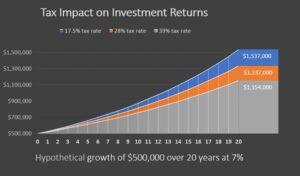Higher taxes are coming for trusts: the PIE escape route
The tax rate for family trusts is increasing from a flat 33% to 39% from 1 April 2024. Many Kiwis use trusts to build their retirement savings or pass on their wealth to the next generation and, without care on how investments are structured, may face the full impact of this 6% increase in tax.
Which trusts will this affect?
If a trust fully distributes its income to its beneficiaries, that income is taxed at the recipient’s marginal tax rate meaning the upcoming trust tax increase will not affect them. However, if the trust does not distribute all its income, then the trustee flat rate of 39% will apply.
What does this mean to me as a trustee?
With the incoming tax changes, it is a good time to review your trust investment strategy for tax efficiency. While taxes should never be the primary reason for making an investment decision, they are an important consideration as each investment pathway has its own risks, benefits, and nuances in how they are treated by the IRD.
What is a Portfolio Investment Entity (PIE) and how can it help my trust?
A PIE is a type of investment entity that has special tax rules. Investments structured in a PIE will have a maximum tax of 28% applied. However, not all PIE structures are created equal – an important consideration is efficient deduction of trust expenses against PIE income. The individual circumstances of a trust and its beneficiaries may provide avenues to further optimise after-tax returns by using a combination of PIE and non-PIE investment assets in a portfolio.




